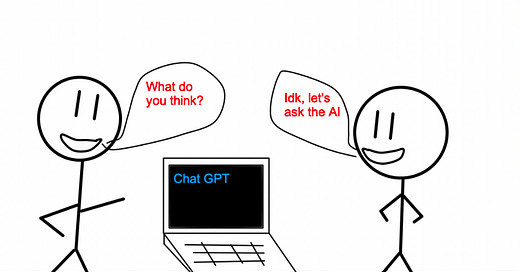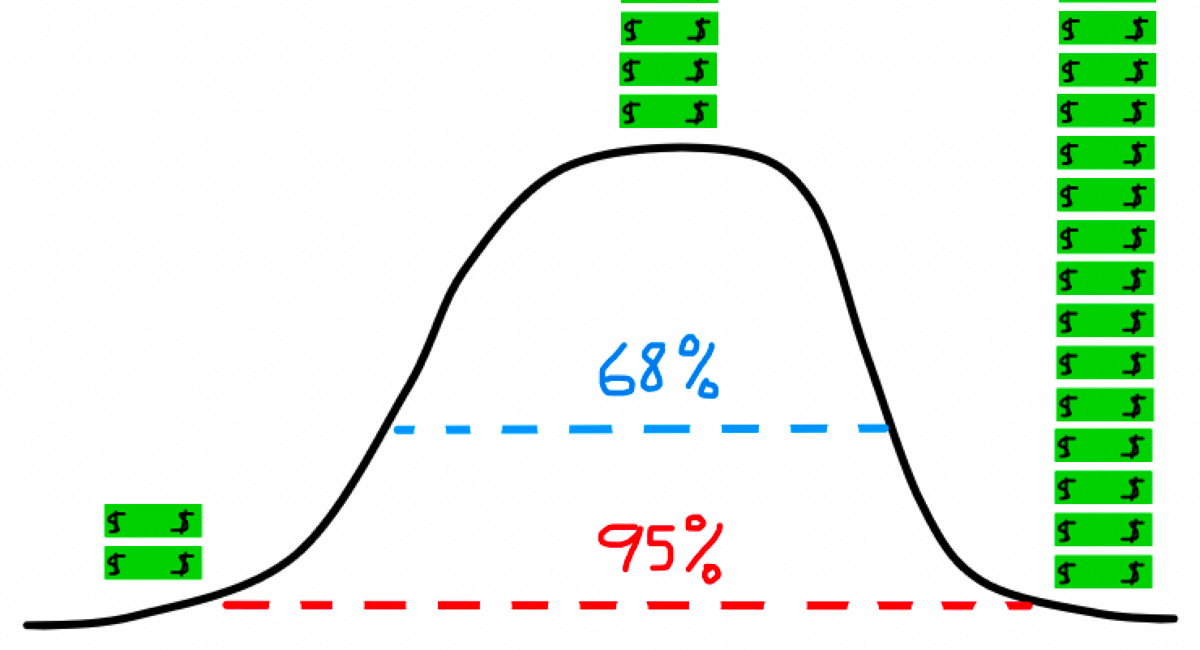Welcome to Young Money! If you’re new here, you can join the tens of thousands of subscribers receiving my essays each week by adding your email below.
When I was a kid, I played way too many video games. Call of Duty, Halo, Skyrim, Super Smash Bros, you name it, I played it. But when I was 10-11 years old, one game stood out from the crowd: Pokémon.
At its core, Pokémon's gameplay centered around battles between creatures (these are the "Pokémon") of different types, such as fire, water, grass, and electric. Different types of Pokémon had varying levels of effectiveness against each other, and evenly-matched players engaged in chess-like battles in attempts to exploit each others' weaknesses.
But Pokémon wasn't just a strategy game, it was very much an open-world adventure that invited you to explore an exotic land full of mysterious creatures. You could travel by ship to faraway islands, get lost in volcanic jungles, and wander through desert biomes in search of rare Pokémon to bolster your team.
But the best thing about Pokémon? It never really ended. Sure, the game has a plot: you catch and raise your first Pokémon, battle your way through various "gym leaders," conquer the Elite Four, and defeat the antagonist en route to becoming a Pokémon champion. But it doesn't stop there.
You can continue exploring the world in pursuit of capturing every Pokémon in the game. You can train your Pokémon to become stronger, you can trade them with your friends, and you can even transfer your Pokémon from game to game to strengthen your other squads.
Still, your ability to interact with other players in the Pokémon ecosystem was limited by proximity until the release of the Nintendo DS. The first handheld device to support WiFi, the DS allowed players from around the world to battle and trade with each other in real-time, as long as both parties had sturdy internet connections. And this constant availability of new challengers made the game more addicting than ever.
So, as an 11-year-old boy with a good WiFi connection, I would sit on my living room couch, legs crisscrossed, playing against kids from South Korea.
Unfortunately for me, I quickly discovered that some of my opponents were really, really good. Getting waxed by kids from 12 time zones away was a frustrating endeavor, until one day, I found my solution: The Gameshark.
The Gameshark was a device that I could plug into my Nintendo DS to upload cheat codes for pretty much any video game. For Pokémon Diamond, I could boost all of my Pokémon to their max levels, auto-find rare Pokémon in the wild, and teach any of my Pokémon any attack moves that they were compatible with.
So naturally, I bought a Gameshark and built a super team. Level 100 Charizard, Sceptile, and a slew of other choice Pokémon that would make me virtually unbeatable.
And guess what? It worked. I was virtually unbeatable, and I was exacting my revenge on the legions of international gamers who had tormented me for the last three months. But SURPRISE SURPRISE, you'll never believe what happened next!
I grew really, really bored with the game.
It wasn't necessarily the winning that was boring. If I had caught and trained my own Pokémon to be this dominant, the victories likely would have been satisfying.
But I didn't catch them, train them, or do any work at all. I simply typed in a code, created the 1992 Dream Team of Pokémon, and went on a warpath. And yeah, I got the results I wanted. But because I skipped everything else, the game lost its luster.
I've spent a lot of time messing around with AI tools lately, especially ChatGPT. And ChatGPT is cool. It's really cool. It can create recipes from simple prompts, it can provide vivid accounts of historical events, and it can write 1,000-word essays that would probably get you through college with a 3.2 GPA.
And now that crypto is dead, tech stocks are down 80%, and everyone is all-in on the AI boat, the general consensus is that AI will replace 90% of writing because it can produce quality results in minutes, rather than hours.
But this argument misses the point.
Sure, if writing were simply a means to an end, and the goal was to churn out text after text after text, then yeah, that hypothesis might have some merit. But writing is so much more than an archaic activity in need of a technological overhaul. Allow me to demonstrate why.
Suppose I ask you a question: What is the optimal amount of money?
You could say $1M.
or perhaps you would say $10M.
Or you might have a taste for the finer things, and you would need $100M to feel secure.
Or maybe you say $0 because you believe that money is the root of all evil. I don't know. It's a subjective question that will yield a subjective answer. You could pick any number, really. Now let's dig deeper:
Why is $____ the optimal amount of money?
Answering "what is the optimal amount of money?" is as simple as stating a number. Explaining how you came to that number? Well, that's a different story. Say you choose $1M. Okay, why did you choose it? Because a million sounds good? Because it's seven figures? Because you think investment returns on $1M would be enough to supplement other income over the course of your life? Because you are a sucker for vanity metrics and want to be a millionaire?
Okay, what is the rationale for your "why"? Why does a million sound good? Why would the investment returns on $1M be enough for you? Why does the "millionaire" label matter so much?
The answer to every question opens the door to another question as you dive further into the underlying assumptions behind your answers, and you can only peel back so many layers with your mind alone before you run out of computing power.
If you want to go deeper, you have to sit down and write.
So you start by writing down your answer. $1M. $10M. $100M. $0. A range. Something. Then you write down why you think that. You start researching your assumptions. You realize that your assumptions were wrong, so you adjust your answer. You dive further down the rabbit hole. You see that someone else has written about this very topic, and you skim their work. Maybe you quote them in your own essay, because their work resonates so much with your new thesis. And every single improvement and update is recorded.
Then you go back and read the whole thing, and it sounds awful. "No one would want to read this," you tell yourself. "I'm rambling. Incoherent." So you revise it. You chop out the unnecessary fluff. You rearrange different sections so the narrative is cohesive. You sleep on it. You reread it in the morning. Then you realize two things:
"Damn, this is unrecognizable from my original thoughts," & "Damn, this is pretty good."
And you never would have reached this clarity of thought if you hadn't sat down to write.
We all have different beliefs across a variety of disciplines, from politics to economics to finances to dating preferences to the importance of different historical events. And we *think* that we fully understand these subjects, and countless others, because we can picture ideas and form opinions in our heads.
But our thoughts are fleeting.
They don't allow us to marinate on an idea long enough to realize how much information we lack. By the time we finish processing "What is the optimal amount of wealth," our mind is distracted by the chime from our iPhone, the police sirens outside our window, or some other whimsical thing. And that half-construed thought vanishes as quickly as it appeared.
But written words aren't subject to the ebbs and flows of the mind. They remain on the screen, the shallowness of our arguments and the gaps between our assertions taunting us as an incoherent jumble of words. The only way to add depth to these arguments and resolve these lapses is to write more, and the only way to write more is to think and read and research more. So you think and read and research and write.
Eventually, if you stick with this process, the essay will tie together in one beautiful piece.
And then you have your answer to the question: "What is the optimal amount of wealth?"
The writing process is always frustrating and painful and at times mind-numbing before it becomes transformative, beautiful, and illuminating. That's a feature, not a flaw. Writing isn't like a Ford assembly line, where the "creating" process is merely a means to produce a final product, and efficiency should be maximized above all else.
Writing is thinking.
When you outsource writing to AI for the sake of speed, you sacrifice the development of your own thoughts and the exploration of your own opinions. Sure, you can produce a response to a question, but you won't gain any understanding. You might conjure an answer, but you don't learn anything in the process.
Don't get me wrong, these AI tools are insane, and I enjoy many of them myself. But efficiency comes with a cost, and I'd be wary of exchanging my own understanding as payment.
(This isn't just an AI thing.)
- Jack
I appreciate reader feedback, so if you enjoyed today’s piece, let me know with a like or comment at the bottom of this page!
Young Money is now an ad-free, reader-supported publication. This structure has created a better experience for both the reader and the writer, and it allows me to focus on producing good work instead of managing ad placements. In addition to helping support my newsletter, paid subscribers get access to additional content, including Q&As, book reviews, and more. If you’re a long-time reader who would like to further support Young Money, you can do so by clicking below. Thanks!
Jack's Picks
The Wall Street Journal recapped the biggest stories of 2022.
I recently read a fantastic Simon Sarris piece on the role that agency plays in shaping our lives, check it out here.
As part of Thursday's piece, I want to do a Q&A with you guys. If you have a question that you'd like to hear my opinion on, click here to submit your question!





